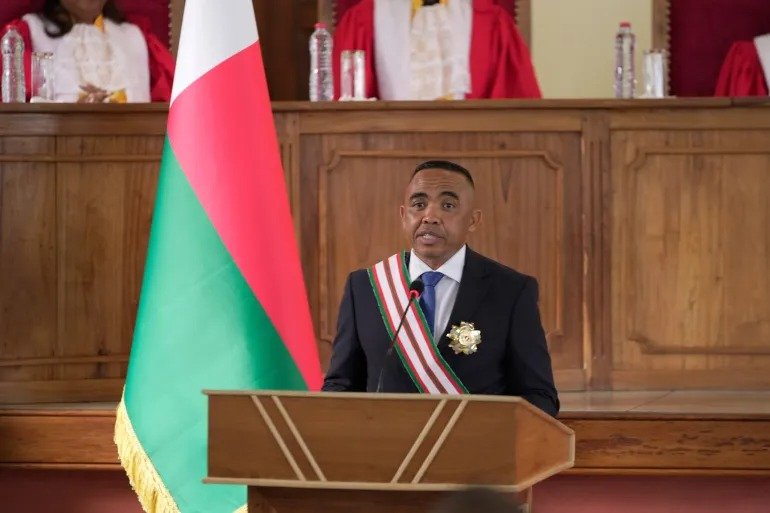Colonel Michael Randrianirina was sworn in as President of Madagascar on Friday, three days after his military unit seized power following youth-led protests that forced President Andry Rajoelina to flee the country.
Randrianirina took the oath of office during a ceremony at the Constitutional Court headquarters in the capital, Antananarivo. The court had invited him on Tuesday to “assume the functions of head of state,” just hours after the National Assembly voted to impeach Rajoelina.
The 51-year-old officer has sought to legitimize his takeover, rejecting the characterization of Rajoelina’s ouster—after three weeks of demonstrations—as a coup d’état.
In just two years, Randrianirina has gone from being arrested on suspicion of plotting a coup to being installed as president without an electoral process.
The protests in Antananarivo, the island nation’s capital—known both for its tourism appeal and deep poverty—began on September 25, initially demanding an end to water and electricity outages before escalating into calls for Rajoelina’s resignation.
According to UN figures, 22 people were killed and about 100 injured at the onset of the unrest.
Randrianirina said on Thursday that his administration “respects the rule of law,” but questioned the feasibility of holding elections within 60 days, as stipulated by the Constitutional Court in its ruling.
He promised to organize elections within 18 to 24 months, adding that he was preparing to launch a consultative process to select a prime minister as soon as possible.
Madagascar, which has a long history of popular uprisings leading to military governments, remains one of the poorest countries in the world. At least 80% of its 32 million citizens live on less than €2.80 a day, according to the World Bank’s poverty threshold.

